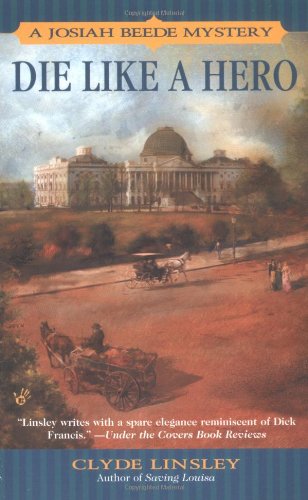Die Like a Hero
Canny New England farmer Josiah Beede seems equally at home in the murky politics of 1840s Washington, DC, and in the village entanglements of New Hampshire. In Washington, famed orator and dictionary compiler Senator Daniel Webster calls on Beede to investigate the sudden death of President William Henry Harrison after only thirty days in office. Harrison, known as Old Tippecanoe after his exploits in a famous battle against the Shawnee tribe and their great chief Tecumseh, was the first American president to die in office. He was succeeded by John Tyler, a pro-slavery states-righter mistrusted by nationalist Whigs like Webster. Harrison’s age and poor health make the historical diagnosis of pneumonia more credible than Webster’s conspiracy theory, but Beede agrees to find out what he can.
Very soon, however, Beede must abandon the Harrison case and rush back to New Hampshire on the new railroad to search for the missing husband of a woman he once hoped to marry. This murder case is further complicated with a sub-plot involving a slave-catcher enlisting local bigots to try to kidnap and re-enslave Randolph and Louisa, a free African-American couple farming near Beede’s home.
Although the idea of a murder plot against Harrison is unconvincing and not well-integrated into the other plots, it is a laudable attempt to enliven the story of one of the more forgettable presidents in US history. Linsley’s dry, unemotional style and his historical note convey much information on political and racial attitudes of the 1840s. Third in series.










